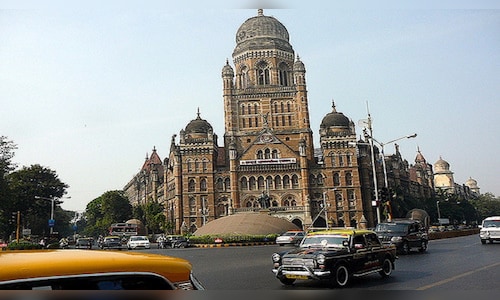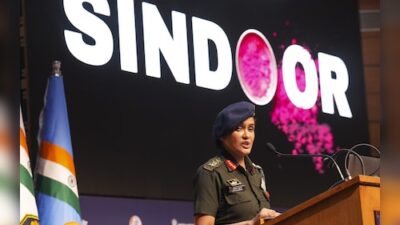However, this delay stems from a tangled network of political maneuvers, legal obstacles, and administrative inefficiencies that have adversely affected both the political climate and grassroots development across the state.
Reasons for the delay in local body elections in Maharashtra
The postponement of local body elections in Maharashtra, particularly in major municipal corporations such as Mumbai, Pune, Thane, and Nagpur, can be attributed to a mix of legal uncertainties and political hesitations. A significant turning point was the Supreme Court’s 2022 ruling, which mandated the inclusion of the OBC quota only after the state gathered empirical data. This requirement led the State Election Commission to suspend elections until the Backward Class Commission presented a detailed report.
Despite the commission providing its findings, elections have not taken place. Successive administrations, first the Maha Vikas Aghadi (MVA) and currently the Mahayuti coalition headed by CM Devendra Fadnavis and Deputy CMs Eknath Shinde and Ajit Pawar, appear reluctant to proceed without precisely redrawing ward boundaries and finalizing reservation lists. Many observers suggest that this hesitance is politically driven — both coalitions fear losing crucial municipal bodies, particularly in urban areas where voter sentiments have shifted since the 2019 and 2024 Lok Sabha elections.
Effects on Maharashtra’s political landscape
The extended delay in local body elections has created a vacuum in grassroots politics. Most municipal corporations and zilla parishads are currently managed by bureaucrats rather than elected officials. This situation has distanced citizens from their local political representatives and diminished accountability.
This political vacuum has allowed major parties — BJP, Shiv Sena (Shinde), NCP (Ajit Pawar), Shiv Sena (UBT), and Congress — to operate in a continuous campaign mode. Parties have utilized this period to strengthen their voter bases, reconfigure alliances, and shift public narratives, especially in the BMC, where the contest between Shiv Sena (UBT) and Shinde Sena has taken on elements of a prestige battle. The delay has particularly favored ruling parties, enabling them to sidestep immediate electoral repercussions arising from public discontent around governance, inflation, and civic issues.
Furthermore, this political indecision has sparked increasing cynicism among voters. The widespread belief that parties are dodging elections to manipulate outcomes compromises the credibility of democratic institutions, leading citizens to feel that the electoral process is being undermined for political gain.
Consequences for development and civic governance
One of the most apparent repercussions of the stalled elections is manifested in everyday governance. With bureaucrats in charge, local bodies have transformed into largely reactive entities. Key infrastructure initiatives, budget approvals, and welfare programs have faced delays. Projects requiring political oversight and public consultation — be it road repairs, waste management, or urban development plans — often find themselves in limbo.
In a diverse state like Maharashtra, where rural and urban requirements differ significantly, local self-governments are the frontline for citizen engagement. Their dysfunction has resulted in sluggish grievance redressal, lack of transparency in fund disbursement, and weakened execution of centrally and state-sponsored initiatives like Smart Cities Mission, Swachh Bharat, and Jal Jeevan Yojana.
Importance of BMC elections
At the center of this judicial action is the BMC — Asia’s wealthiest municipal corporation, with an annual budget surpassing that of several Indian states. Controlling the BMC transcends mere civic administration; it embodies political legitimacy and financial dominance. The BMC has historically been a stronghold for Shiv Sena, serving as its foundational power base and revenue source.
However, the 2022 split within Shiv Sena has altered this dynamic significantly. The Uddhav Thackeray-led Shiv Sena (UBT) views the forthcoming BMC elections as a critical opportunity to reclaim its identity, while the Shinde-led faction seeks to establish its political relevance in Mumbai. Meanwhile, the BJP aims to capture the BMC to broaden its urban influence and implement its “double-engine” governance model with both state and municipal collaboration.
Winning the BMC is also symbolically vital — it acts as a barometer for public sentiment following the Maharashtra Assembly elections. With MVA alleging that Mahayuti won by manipulating voting machines, it will indicate whether Mumbaikars support the rebel Shinde faction or remain loyal to Uddhav Thackeray, as well as assess the effectiveness of the BJP’s urban strategy in claiming the BMC throne, which it has coveted for some time.
The Supreme Court’s directive serves as a crucial reminder that democracy cannot be held captive by political convenience or administrative delays. Local body elections are fundamental to participatory governance and should be treated with the urgency accorded to state or national elections. Maharashtra, one of India’s most politically pivotal states, cannot afford further erosion of its local institutions. The responsibility now lies with the State Election Commission — citizens must stay alert to ensure that this court order results in genuine democratic restoration on the ground.



